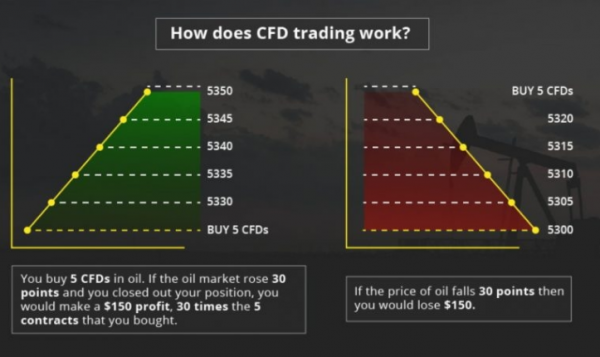Interested in CFD trading? CFDs (Contracts For Difference) are a type of financial derivative products. When we say derivatives, we mean derivatives of lifelong stocks. Other derivative products are options (perhaps they sound more like “stock options”) or futures, for example.

In any case, CFDs are products that can be bought and sold, like stocks, within their own market. Of course, money can be made from them. And a lot.
Some conventional brokers give you the possibility of trading CFDs, although there are brokers exclusively dedicated to this type of product. Now that you know what CFDs are in trading, let’s see some features when it comes to trading them.
Why trade CFDs instead of stocks?
There are several reasons for doing this. CFDs can be a very interesting option. Let’s see why:
– You access different markets through the same product
The price of the CFD quite precisely matches the price of the stock, so, to a certain extent, it is the same to have shares or CFDs. The difference is that, in addition to having CFDs on British stocks, there are CFDs on American stocks. But, in addition, there are also world indices, commodity futures, etc.
That is to say, suddenly, you have access to speculate at the same time with such diverse underlying assets such as: Microsoft, BBVA, S & P500, gold, crude oil, soybean oil, German bond, euro against the dollar, etc.
– You can take short positions
As you know, it is difficult, if not impossible, to find a broker in South Africa that allows short positions with stocks (which is our weapon to make money when the stock market goes down). However, any broker that offers CFD trading will allow short positions on these products. Conclusion, you can be profitable both on the ups and downs without leaving this country. Visit Forextime for more info about this.
– Allow leverage
A typical feature of financial derivatives is leverage. This means that with little money you can move a lot. You can have it physically or not, but it is common to be able to move twenty-five times more money than you put on the table. However, the power of leverage can be used or not and, if resorted to it, can be used to a greater or lesser extent.
In any case, if you are a newbie, your destiny is to lose money on average; so you better never leverage yourself, because you would simply accelerate your loss in the same proportion as you would leverage. Once you see that you are able to win consistently, then you can leverage yourself to multiply your profits by moving much less money.
Can you win?
Yes you can win like what you did in Forex trading! Here’s a trick:
Some of your clients (imagine 50) will want to buy a CFD on gold. And others will want to sell a CFD on gold (imagine 45). The broker could counterpart the 50 buyers on the one hand, by selling them a CFD on gold. And also to the other 45 sellers, buying it from him. (And, in theory, going to a CFD market to find or place all of these contracts individually.) But what is usually done is to neutralize the positions of the clients among themselves, so that they sell each other without ever reaching the market positions. So only the net result of positions (in this case of 5 CFDs) is what the broker has to actually support by sending to the market. This allows you to win without losing money to the broker.
We hope you can get benefits from reading this article.